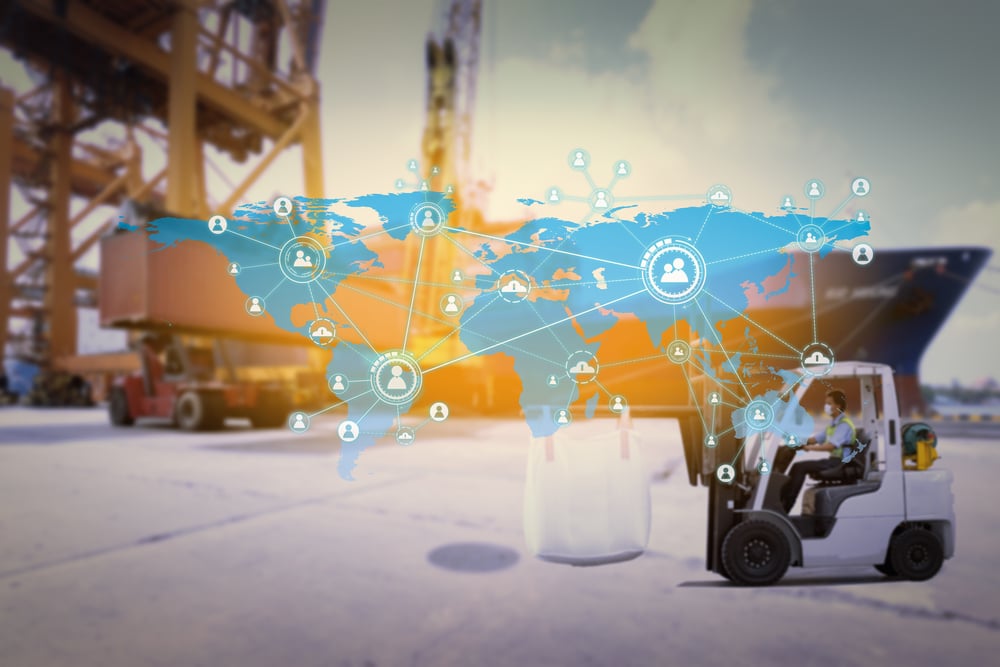The trucking industry plays a crucial role in supporting global economic activity and sustaining growth. Logistics and transport is a key component of supply chains across industries like manufacturing, retail, and agriculture.
It helps in the transportation of goods and raw materials across the country. Truckload transportation allows businesses to reach customers and access various markets by providing a reliable and flexible mode of transporting goods and raw materials.
Furthermore, truckload transportation offers a reliable solution to support international Business. These advanced transportation solutions help in transporting goods to and from airports, ports and distribution centers.
Over the years, the truckload transportation industry has evolved to meet the growing demands of the modern business world. Companies have invested in technology to train their employees and enhance their fleet capabilities. They are utilizing advanced equipment, tools and vehicles to improve fuel efficiency and reduce emissions.

Future Of Transportation Technology: Key Challenges And Innovative Technologies
The future of transport is affected by several key challenges and innovative technologies. Here’s how these factors are influencing the evolution of the industry-
- Capacity Concerns: The truckload transportation industry is struggling with fluctuating demands and supply dynamics. Maintaining adequate capacity is a major challenge for businesses. Some factors such as economic fluctuations and market uncertainties may be the key cause for unpredictability. To deal with this situation, transport companies are leveraging data analytics and predictive modeling. It allows them to better understand the demand fluctuations. Using this data, they are tailoring their capacity planning accordingly.
- Rising Fuel Costs: Rising fuel prices have become a major concern in truckload Freight Shipping sector. This has a high impact on operating costs and profit margins as well. With the rising cost of fuel, professional transportation companies are seeking alternatives which are more sustainable. They are exploring options such as biodiesel, hydrogen fuel cells, and electric-powered vehicles to reduce dependence on standard fuel types. They are opting for cleaner, greener energy sources.
- Digitalization: To cope with the increasing competition, truckload transportation companies are implementing digitalization to streamline logistics and supply chain operations. Companies can use digital solutions to improve cargo tracking. If logistics companies use digitization in processes such as inventory management, route optimization, and freight tracking, they can efficiently minimize manual errors. It will eliminate the need to hire manpower which further reduces overhead costs and enhances overall productivity.
Innovative Technologies: Future of Full Truckload Shipping
The future of truckload transportation is being affected by several innovative technologies. Let’s have a look-
- Autonomous Vehicles: Autonomous trucks are changing the game in trucking. They are the future of transportation technology. They can drive themselves using smart technology like sensors and AI. They are designed to handle tough traffic situations and even bad weather conditions. By using AI and sensors, they make deliveries more efficient, save money, and help with driver shortages and accidents caused by tired drivers. Trucking companies are spending a lot on research to make these self-driving trucks a reality, and it will change how we move goods around.
- Platooning Technology: Platooning technology has emerged as a promising solution to improve the future of the transport industry. This innovation helps to optimize fleet management and improve fuel efficiency in truckload transportation. Platooning technology helps trucks work together like a team, saving fuel and money. It connects trucks digitally, so they can drive close together in a line and navigate in tough traffic conditions. This not only cuts fuel costs but also saves the environment. Above all, it makes driving safer by allowing trucks to react quickly to dangerous situations and keep a safe distance. Trucking companies are testing this tech to see how it can make their operations better and change the future of truckload transportation.
- Increasing Transparency and Visibility: Transparency and visibility are essential components of efficient logistics operations. Truckload transportation companies are leveraging advanced technologies such as blockchain and IoT (Internet of Things) to enhance transparency and visibility throughout the logistics network. Businesses can create a seamless flow of information across the supply chain by digitizing documentation processes and recording transactional data on a decentralized, tamper-proof ledger. They utilize IoT sensors for real-time tracking. This enhanced visibility plays a crucial role in truckload freight shipping. With this advancement, companies can better coordinate with suppliers, carriers, and consignees.
- B2B Service Providers: These service providers offer multi-modal platforms to facilitate seamless collaboration and communication among stakeholders in the logistics ecosystem. These platforms serve as centralized hubs where suppliers, carriers, and consignees can interact, exchange information, and coordinate shipments in real-time. This end-to-end visibility into the supply chain and streamlined documentation processes help B2B service providers to enhance decision-making and enjoy smoother operations, and enhanced customer service.

Conclusion
The technologies discussed in this post will contribute to improving the future of truckload transportation. If transportation companies implement these technologies in their operations, they can significantly gain efficiency, reduce costs, and improve customer satisfaction. Additionally, using these innovations in their processes, helps them to stay competitive in the market.


